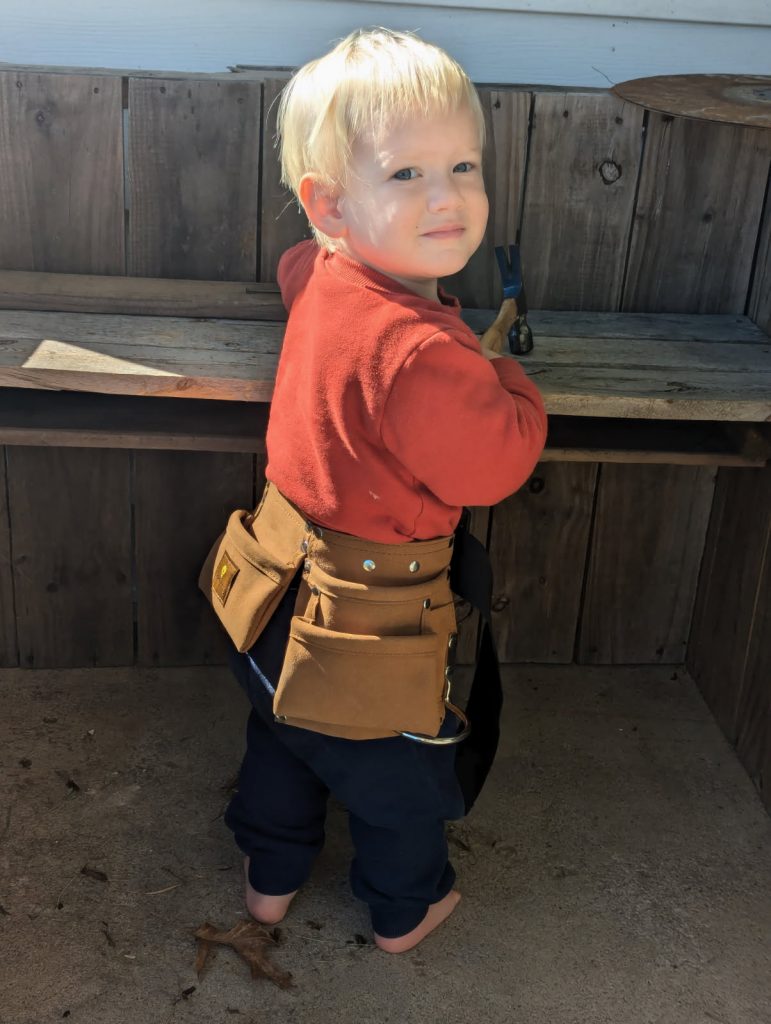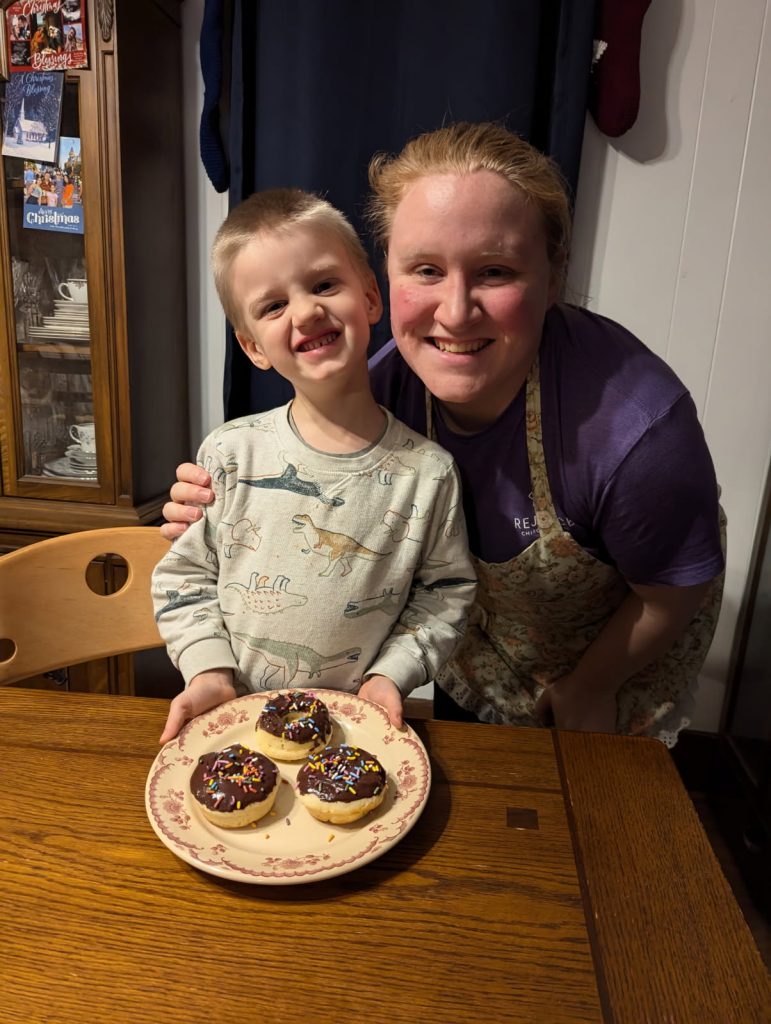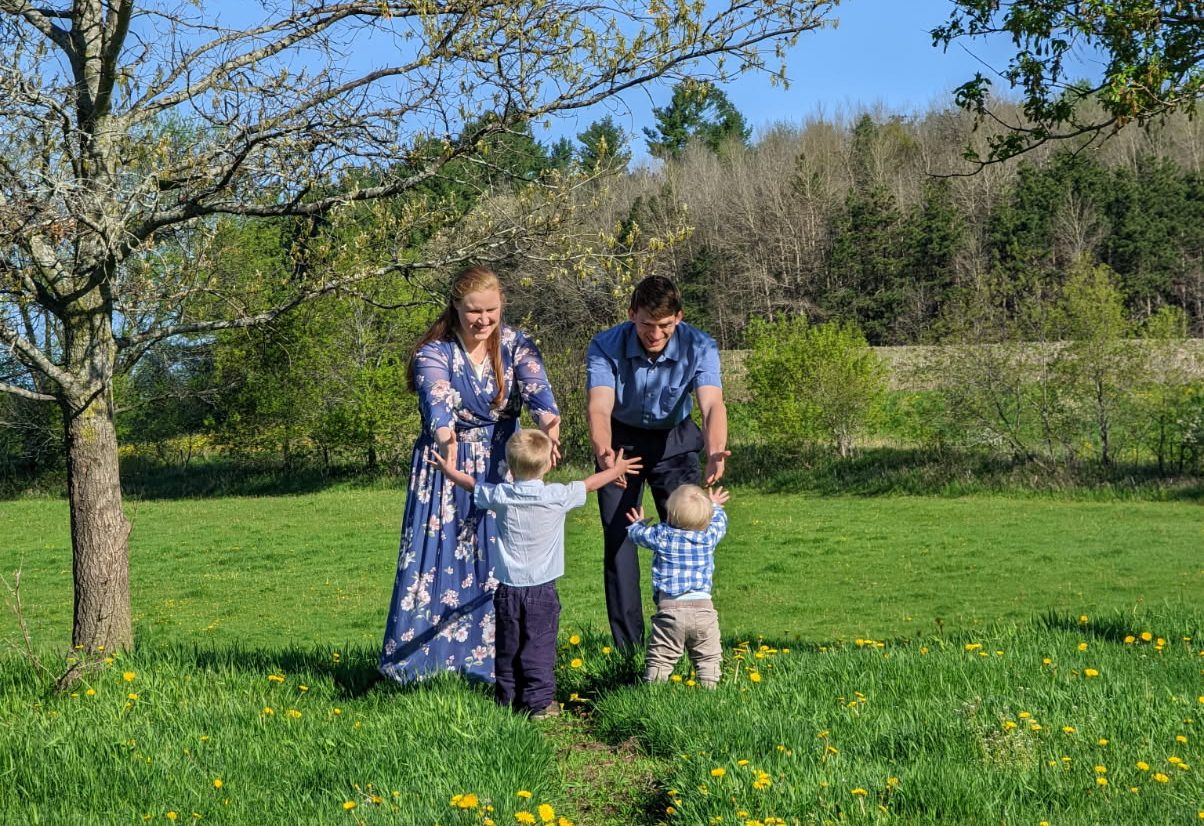What one family learned about God, vocation and community by embracing a simple life close to the land
Homesteading is by no means a new idea, but it has gained significant traction thanks to the modern age and the “Great Return to the Home” movement of 2020. Social media platforms, Substack articles and the like have promoted this… Well, what is it exactly? Is it simply an aesthetic? Baking sourdough bread and raising chickens on one’s own land?
Unpacking what people mean when they say “homestead”—and the profound implications of how that connects to our mission as Christians—is what I discovered in my interview with Mrs. Therese Butek.
Philosophy of the Homestead
Therese and her husband, Joshua, originally hailing from Ohio, met at Christendom College in Front Royal, Va. It was there that their interest in homesteading took root. They both attended Dr. John Cuddeback’s class titled “The Philosophy of Family and Household.” Through this class, Therese discovered the literal meaning of the word “homestead”: having a steady place where you reside.
Their professor explained how the history of families leaving the home was primarily driven by the Industrial Revolution and amplified by the Great Depression, wars and the sexual revolution. The amount of time that families spend together, let alone in their own homes, has drastically decreased, and current culture attests to this reality.
Called to Stewardship
Additionally, there is another crucial element that their professor emphasized.
“It’s having one spot to be in, yes, but more than anything, it means good stewardship of that place,” explains Therese.
Paragraph 2402 of the Catechism of the Catholic Church, titled “The Universal Destination and the Private Ownership of Goods,” states: “In the beginning God entrusted the earth and its resources to the common stewardship of mankind to take care of them, master them by labor, and enjoy their fruits. The goods of creation are destined for the whole human race.”
We are universally called to care for creation regardless of where we live. It’s something the late Pope Francis implored the faithful to grasp in his papal encyclical Laudato Si’ “On Care for Our Common Home.” He drew on the example par excellence of St. Francis of Assisi, saying: “His response to the world around him was so much more than intellectual appreciation or economic calculus, for to him each and every creature was a sister united to him by bonds of affection. That is why he felt called to care for all that exists.”
By drawing on the wisdom of St. Francis and the Catechism of the Catholic Church, we recognize that humans are called to exercise a natural love and respectful dominion over creation—including land, animals, gardens and other resources. Therese shared a story that exemplified this attitude and its effects—and is arguably the mascot for homesteads everywhere—chickens.
A Family and its Flock
Last April, her family purchased and began raising chicks. They kept them in a tub in their house, where their two boys could interact with them daily. While the family was on vacation, Therese’s brother took care of the chicks alongside his own fledglings. Afterward, he remarked on how much friendlier her chicks were compared to his. To this day, the Butek’s chickens are quite amiable and easy to interact with.

“We’ve lost that sense of stewardship with the rise of mega-farms. In farming, we are called to treat the environment with respect, since we have dominion over it,” she reflects. “This means treating animals with kindness and being responsible stewards of what we have been given. We remember that hamburger is not just meat—it was once a cow.”
We live in a material world where we need to provide for ourselves, as emphasized in the previously mentioned section of the Catechism of the Catholic Church: “The earth is divided up among men to assure the security of their lives… The appropriation of property is legitimate for guaranteeing the freedom and dignity of persons and for helping each of them to meet his basic needs and the needs of those in his charge. It should allow for a natural solidarity to develop between men.”
This last line is one that resonates deeply with Therese. We all find ourselves in different circumstances, with different gifts and skill sets. The goal of a Catholic homestead should not be self-sufficiency. That might be a secular understanding of the concept, but we have the theological understanding of what it means to be united in the body of Christ.
“Everything we do should be for the Lord. Not all are called to homestead, but we’re all called to be good stewards and work together as a community to provide. That could look like bartering, sharing your excess or helping each other on projects. Ultimately, it’s about providing a sense of community support.”
Beyond a Passing Trend
In the aftermath of 2020, many people found themselves drawn to a slower, more traditional way of living. The virtue of growing your own food, raising chickens and going out each morning to collect eggs—that grounded, rhythmic way of life—was no longer seen as burdensome but, for many, as the dream. Therese addresses this societal shift: “It’s much more than a trend or an aesthetic; it’s a mindset.”
What their homestead has looked like since their marriage began five years ago has evolved alongside their changing living situation, growing family and developing careers. Through it all, they’ve remained committed to good stewardship and to keeping Christ at the center of whatever they produce.

“We started small with homesteading. Down in Virginia, in our apartment, it was just a bucket garden that gave us a handful of produce. But we were students and working,” she laughs.
They welcomed their first son and then made the move back to Wisconsin. After spending some time living with family, friends connected them with dairy farmers who had a house available to rent. Located just off the pasture, the couple offered to till them a plot for gardening.
“Some years are more successful than others,” Therese says matter-of-factly. “We now have 17 chickens. I try to make food from scratch—sometimes more, sometimes less. We get raw milk from our landlords and make yogurt, kefir and butter; I ferment beet kvass and sauerkraut and bake sourdough.”
She and Joshua have been working their way through “The Liturgy of the Land” by Jason M. Craig and Thomas D. Van Horn. Its authors promote a practical and spiritual way of life that is deeply connected to God’s creation, with the family and home at the center of daily activity. The book serves as an inspiration to the couple as they strive to live a life that is both productive and holy.
Therese aptly sums up their family philosophy: “What really matters is: Is the Lord first in your life? Does He permeate every aspect of your life? Because if He is not first, then nothing else matters, whether you homestead or not, whether you pray x number of rosaries or have a big family or have your dream job or spouse. He is the only One that will fulfill you completely.”
Story by Alexis Wislinsky
Published in the Fall 2025 Edition of Catholic Life Magazine

